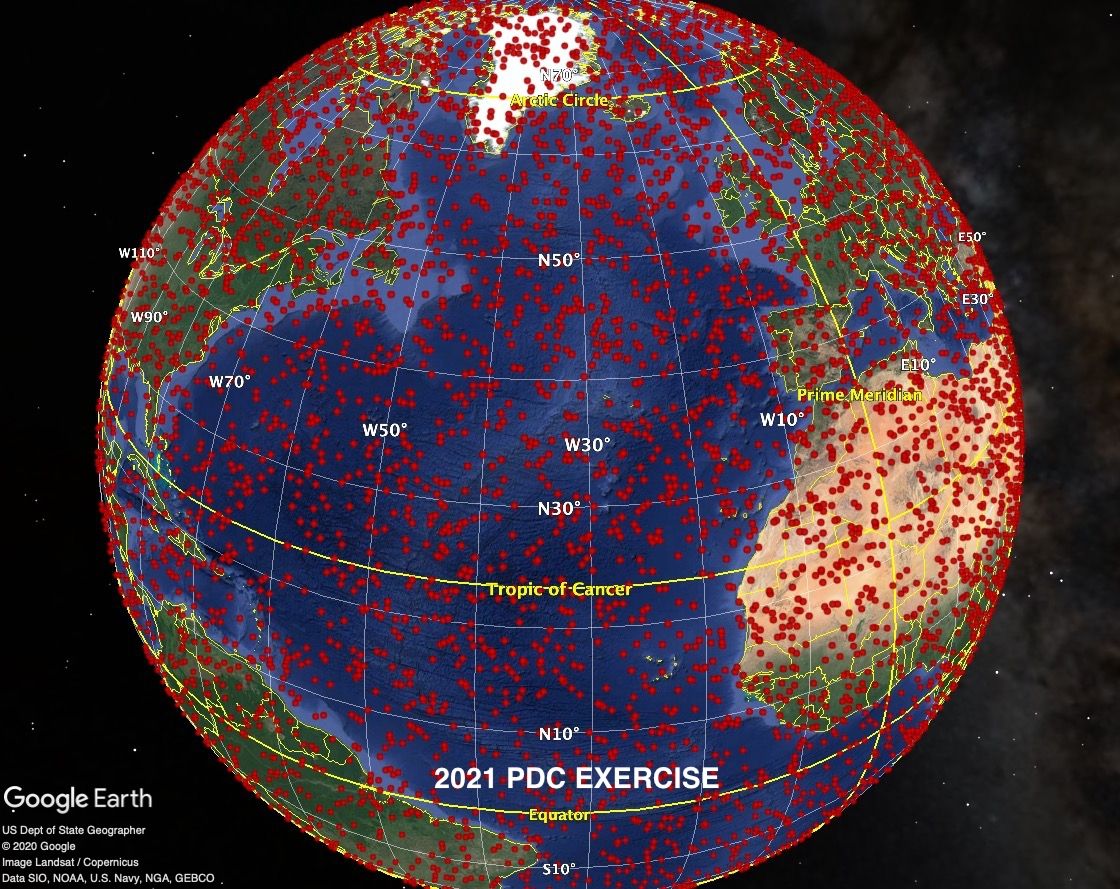
During this year's exercise, which unfolded online from April 26 to April 28, the scenario presented an impact just six months away, a pointed reminder that limited lead time is a key weakness in our asteroid defense systems.
"The best solution to this scenario is not to get into it in the first place," Lindley Johnson, NASA's Planetary Defense Coordination Officer, said during the hypothetical scenario.Hence, hypothetical asteroid exercises, the planetary equivalent of a fire drill.For the Planetary Defense Conference exercises, a team of scientists at NASA and elsewhere pull the alarm by creating a fictional asteroid around which to build a scenario.Along the way, the full range of planetary defense community members — from asteroid scientists and lawyers to spacecraft engineers and emergency response personnel — think through what challenges they would face, what choices they would make, and what information or plans they wish they had.Related: Planetary defense experts use infamous asteroid Apophis to practice spotting dangerous space rocks.Because the scenario is meant to push the field of planetary defense ahead, the team behind the hypothetical asteroid works hard to make the situation as grim as possible: if something can go wrong, it usually does.This year's scenario played out accordingly, as scientists announced they had observed the fake asteroid with just six months' notice before the potential impact scenario on Oct.
(You can follow along in the original scenario materials, which are posted on the website of NASA's Center for Near-Earth Object Studies, which is home to planetary defense expert Paul Chodas, who led the team designing the hypothetical asteroid.).Such a mission might also further hone scientists' calculations of where precisely on Earth the asteroid will hit to a scale that emergency response personnel can work with more easily.
The precovery data is a taunting reminder of that latter option: With stronger survey technology active in 2014, scientists might have avoided this hypothetical six-month scenario entirely.
After a string of bad news, the team behind the hypothetical scenario threw humans a bit of good luck: Thanks to a two-month observing campaign using high-power telescopes on the ground and in orbit, scientists track down a few extra crumbs of data about the made-up asteroid.But now there are only four months before the hypothetical impact, and there's still nothing to be done about the asteroid itself."Now we are faced with a short-warning emergency response situation in which we still have a large amount of uncertainty about the object's size and potential damage ranges," Wheeler said.With the new size and impact zone, scientists can simulate thousands of potential impacts with different characteristics to understand the potential scope of damage.
But in the hypothetical exercise, it's not so much about where the made-up asteroid actually ends up as the discussions people have along the way.Particularly key to the exercise is bringing together emergency management experts, whose daily focus is a bit more pedestrian than incoming space rocks, with the scientists who are used to thinking about the potential of an asteroid impact.
"I think that in the context of COVID, if this was to happen now, it would be very natural for decisionmakers to look at the worst-case scenario," said Miguel Roncero Martin of the European Union Emergency Response Coordination Centre.And of course, there's no reason to think that the pandemic will no longer be a factor by the time of the hypothetical asteroid impact."We really miserably failed in understanding its [COVID's] impact on second waves coming, and a third wave has come in Europe already, and what would be the situation by the time this impact happens — will it be a fourth wave?" said Shirish Ravan, a program officer at the U.N.'s Space-based Information for Disaster Management and Emergency Response.